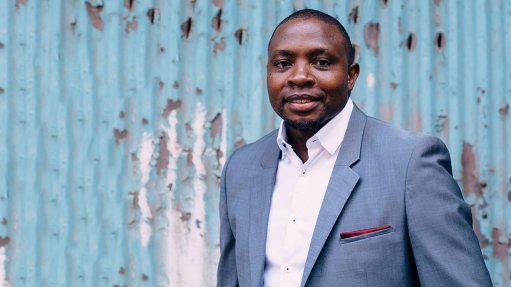
Epitome Consulting GM Clement Mokoenene
With South Africa's electricity largely still generated from fossil fuels and the lengthy processes involved in commissioning renewable-energy, civil engineering company Epitome Consulting GM Clement Mokoenene says transferring high volumes of traffic energy into electricity could significantly change the electricity landscape in Africa.
Owing to this, he enthuses that the company's Vehicle Energy Harvesting System (VEHS) was developed after having seen the impact of an Airbus A380 landing in 2011.
"That got me thinking about the pressure and heat a plane puts on the runway, and from there I looked at our roads and the potholes which are a clear indication of how much pressure they are under," he said.
This, in turn, led him to consider ways in which this pressure could be harvested to generate electricity.
He explained that the VEHS works by installing an overlay on an existing road, extracting the pressure and transferring it to the side of the road, similar to a wind turbine that then creates electricity.
The result is electricity at a much lower, affordable price than the 90% of South African energy which is currently generated in coal-fired power stations and has a huge environmental cost.
Further, seeing the VEHS as an opportunity to partner with poor communities, Mokoenene enthused that the technology is able to promote job opportunities and skills development through having communities involved with the assembly, installation, operation and maintenance of the system.
For his VEHS, Mokoenene was announced as South Africa's representative at the international finale of The Chivas Venture 2018, where he stands a chance to win his share of $1-million in business funding.
Mokoenene has already won R350 000, which he says is a welcome revenue injection to further improve and build more efficient components for the VEHS.
Commenting on the upcoming international competition in May, he stated that the event provides an opportunity for the VEHS to be improved to the best of its capability, while also receiving international exposure which may lead to further investment.
In addition, Mokoenene notes that an alpha-prototype has been built and is currently powering the lights at his offices. However, a beta-prototype is currently being built, with the objective of piloting the system from March this year.
He further mentions that the company is currently in advanced discussions with the Department of Trade and Industry, and that the company is aiming to have two plants up and running by the end of this year.